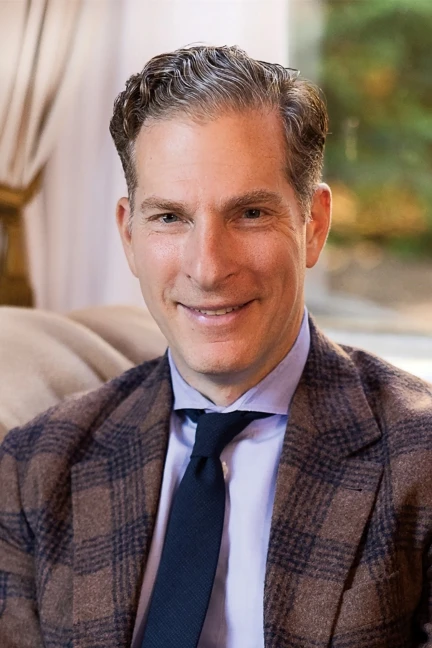
Many Jews must have been driven to apoplexy at the sight of some of their co-religionists joining anti-Israel marches or university protest camps, bearing slogans such as “Not in Our Name”. Rebels against the mainstream, they may represent a small minority of the Jewish population but — and this may be due to the magnifying power of social media — their number seems more than it would have a generation ago.
If that is the case, a new book offers one explanation why this is happening.
To be a Jew Today is written by a Harvard law professor, Noah Feldman. Graduate of a Modern Orthodox day school, he is an author of wide-ranging interests which include books on the rise and fall of Isis and the Arab spring. In his exploration of contemporary Jewish life, he asks the fundamental question of what we might have in common despite our manifold differences.
He believes it better to think of Jews collectively as a “extended family”, arguing that whereas Israelis form a nation, that does not apply to Jews as a whole. Ultimately, he suggests that we share a theology of struggle with God, derived from the name “Israel” with which Jacob was blessed after his all-night wrestling match with the mysterious being before his encounter with Esau. In this iconic image, he is locked in both a struggle and an embrace.
The struggle may manifest itself in different ways. Charedi traditionalists, for example, grapple with the Torah text to prize out its true meaning. Humanist Jews, at the other end of the spectrum, struggle with negotiating a cultural legacy that has God at its centre. But whatever form it takes, we are united in striving to find meaning in the world rather than rest content with simply getting by.
For Feldman, there is one important factor in the contemporary Jewish situation that cannot be ignored: the “transformative” impact of Israel, which has “become far more important in defining Jewishness than it was even in the recent past”.
He has interesting things to say about the increasing identification of Charedim with the state of Israel, even in spite of an ideology of non-Zionism and sometimes anti-Zionism; and also about how Religious Zionism has come under the sway of the messianism of the settler movement.
But it is within Progressive Judaism that the relationship with Israel is becoming more apparent as a struggle.
This branch of the Jewish family enshrined social justice as the core divine imperative. The idea of any return to Zion was rejected by the early 19th century American Reform movement, although that position began to be modified over time. In Feldman’s view, it was the Yom Kippur War which marked a decisive turn.
The threat to Israel led to a new focus on the Holocaust, which had until then occupied relatively little attention. The War also brought home Israel’s reliance on the USA for its security in providing arms, engendering a stronger sense of connection among American Jews and responsibility for helping to safeguard it as a place of refuge.
In the 1980s and 1990s, the Holocaust and the Israel came to be central pillars in the thinking of Progressive Judaism, Feldman says. The liberal social justice ideals that “were essential to Jewish Progressivism” remained “because they were still relevant to the religious-spiritual lives of Jews in the United States”.
When the Holocaust and Israel became part of the Progressive theology of justice, he explains, “both had to accord with it. The Holocaust became a moral lesson of Never Again on par with the Hebrews’ slavery in Egypt.” Just as the biblical commandment to love the stranger because “you were strangers in Egypt” underpinned the ethics of social justice, so remembrance of the Holocaust carried with it a universal lesson.
Israel, arising from the ashes of the Holocaust, became “a model of aspirational redemption, a role it could play only because it was possible to imagine the Jewish state as liberal and democratic”.
But when the hopes of peace faded after the Oslo accords and the Second Intifada ushered in a new era of violence, the relationship became more complicated and a “painful generational conflict” ensued.
For Progressive Jews, “a Jewish state must be a state committed to Jewish values, and those values are the values associated with the Progressives’ faith” he writes.
However, “if Israel abandons the ideals of equality, freedom, and dignity for all, it can no longer be genuinely Jewish in the Jewish Progressive religious sense”.
For Progressive Jews, the divine principles of love and justice command a higher loyalty than the state of Israel, Feldman contends.
For those who have taken part in pro-Palestinian demonstrations, the issue is not one of identity politics, he says, but of “morality, theology and belief”.
Their protest is not a defection from Judaism but, as they see, it an expression of it.
Feldman does not pick sides in his book. His aim is to outline an inclusive vision for Jews. His underlying message is that it is better to understand and engage than condemn.
Indeed, he cautions against labelling anyone “a bad Jew”, no matter how much we disagree with them, drawing on the example of the talmudic heretic, Elisha ben Ahuya, who went off the religious rails. The rabbis would not mention him by name but referred to him as Aher, “Another”.
And yet even so, they still cited his teachings and depict him teaching Torah even though he had left the rabbinic fold. He remained, in his way, part of the family.
To be a Jew Today – A New Guide to God, Israel and the Jewish People by Noah Feldman is out now, Farrar, Strauss and Giroux, $32






